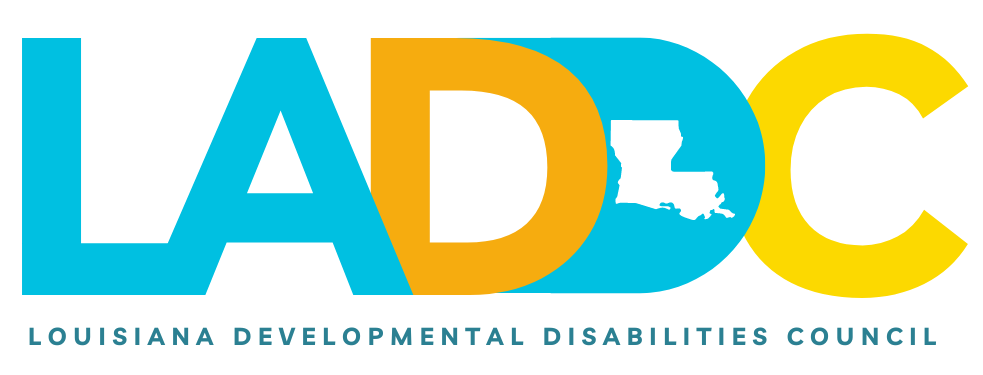Advocacy is used to promote an issue in order to influence policymakers and encourage social change. Media is one of the best ways to gain the attention of policymakers, from local elected officials to members of Congress.

Letters to the Editor and Op-Ed Pieces
You feel strongly about issues related to people with developmental disabilities and you want to let people know what you think and feel. Letters to the editor and opinion pieces can be an effective way to get the word out to a larger audience.
A letter to the editor is brief and is often written in response to a previously published article or letter and can also focus on a current issue. Opinions (called op-eds) are longer articles that make a strong argument about a current issue. They are usually written by an expert and are not written in response to a previously published article or letter.
Most newspapers prefer receiving letters to the editor and op-eds via email or through an electronic form on their webpage. Before you begin writing your letter or opinion piece, you should look at the editorial pages of your target newspaper for specifications on writing letters to the editor and opinion pieces.
Tips on Writing & Submitting a Letter to the Editor or Opinion Piece
- Choose a topic. Don’t try to discuss multiple issues in one letter. Choose just one.
- Be clear and direct. Explain what you’re writing about, why it’s important, and your opinion about what should be done. Your opening sentence(s) should explain to the reader why you’re writing and why it’s important. The importance of your issue may seem clear to you, but remember that the general public may not share your background. If you have suggestions about what could be done to improve a situation include them.
- Choose your words carefully. Explain the issue and its importance simply, using plain language that most people will understand. Do not write offensive language and do not personally attack anyone.
- Follow length guidelines. Letters to the editor are usually very short. It’s important to write a letter no longer than what your target newspaper tends to publish. The most common reason that letters to the editor are not published is because they are too long. Opinion pieces are generally no more than 800 words. Letter to the Editor specifications for major newspapers in LA are listed below:
- Times Picayune – 200 words or less
- The Advocate – 450 words or less
- Shreveport Times – 300 words or less
- Times of Acadiana – 500 words or less
- American Press – 350 or less
- The News Star – 300 words or less
- Follow submission guidelines. Be sure to submit your letter or op-ed as specified by the newspaper.
- Include your full name and contact information. You will be contacted to confirm that you wrote the letter. Newspapers usually will not publish anonymous letters, although in some cases they may withhold your name upon request.
- Proofread your letter. Check your spelling and grammar. Be aware that your letter may be further edited by the newspaper. Don’t take this personally.
- Follow up. Ensure the newspaper received your letter. If your letter does not get published, find out why and send it to another newspaper.
Interviews
Another way of working with the media is to do interviews. Interviews can be done for TV, radio or print media sources. As a parent or self-advocate, you know how disability policy issues affect your family and can credibly share your experience with a reporter or a local talk show.
Tips on How To Conduct Yourself in an Interview
BEFORE THE INTERVIEW
- Know the context of your interview. Ask if the interview is for TV, radio or print. Ask about the subject of the interview, who else the reporter has talked to, and when the story will run. Ask how long the interview will last. Ask if the interview will be live on air or recorded
- Define your message. If possible, review any fact sheets/talking points before your interview. Decide before your interview on one or two messages that you want to emphasize.
- Dress appropriately. Wear dark and solid colors. These look better on camera.
DURING THE INTERVIEW
- Be yourself. The best way to combat nerves is by being you. If you’re pretending, people will be able to tell.
- Stay on message. Your mission is to relay your message. Be prepared to stick to your talking points. Don’t be shy about repeating them multiple times. If the reporter brings up a confrontational issue, remember that your responsibility is to get your message out. Stay calm. Stay on message. Say what you know.
- Tell the truth. Credibility is the key to relationships with reporters. If you don’t know the answer, it’s okay to say that you don’t know.
- Stay calm. If your interview is recorded and you mess up, tell the reporter you would like to stop and start again. Live interviews are rare, but if you have one just talk to the reporter. Don’t think about the camera.
AFTER THE INTERVIEW
- Stay connected. Exchange contact information with the reporter and offer any additional materials or information.
- Ask how you can get a copy of the interview.
Social Media
Through social media, ordinary people, legislators, reporters, etc. can exchange ideas, debate issues, and motivate others to take action by sharing links, videos and other information.
If you are not using social media, you are missing an opportunity to be part of the conversations related to issues that affect individuals with developmental disabilities. There are many reasons why it is important to have a presence on social networking sites: 1) it enhances relationships, 2) it offers a venue for reaching new advocates and supporters, 3) it engages people in shared communication, and 4) it can make the work you do more accessible.
New social media tools are created every day. A few of the most common include:
 |
|
allows users to create a personal profile and communicate with advocates, legislators, friends and others by sharing messages, photos, links and other information |
.jpg) |
|
allows users to communicate using “tweets,” which are short posts of up to 140 characters in length |
 |
YouTube |
is an online video community where users can create, watch and share videos |
Tips for Using Social Media
Are you ready to start networking? Here are a few things to keep in mind:
- Keep your content concise and on subject. Include a link to a website explaining the issue you are advocating for or against.
- Start a conversation. It’s a dialogue, not a monologue. You have to engage your friends and followers.
- Ask a question. It’s the quickest way to involve your audience and make your content interactive.
- Be positive. If you disagree with something, it’s okay to state your case. (Not everyone will share your experience.) But avoid making cruel and nasty comments. It doesn’t help your cause.
- Don’t attack others. Do not post personal attacks or negative comments about any political or public figure. This could damage any future dialogue between you and your policymakers.
- Be accurate. Do not post any false information about a politician, candidate or piece of legislation.
- Don’t be a troll. A troll is a person who spreads conflict on the Internet by starting arguments or upsetting people, by posting inflammatory or off-topic messages with the deliberate intent of provoking readers into an emotional response or of disrupting normal on-topic discussion.
